A lot of our motivation to create open-source eco-innovations and sustainable solutions and to improve the state of the world is based on the emotions of fear: the fear of an environmental apocalypse and the guilt that we, humans, are contributing to its advent through our daily activities and lifestyle choices, says Alexandr Iscenco, CEO of MEGA, or the Moldovan Environmental Governance Academy. He spoke to Justyna Wrobel about the origins of his organisation and its plans for future development.
The year 2017 started in a MEGA active way, didn’t it?
Yes, MEGA’s main achievement was the release of the newly upgraded version of our gamification platform, called “MEGA Game: The Game with Impact”. This is a platform for connecting individuals with organisations and for nurturing environmentally friendly habits and socially valuable behaviour. Today, it has features such as satellite-view-based mission screens with location-based markers where players can view and select individual missions, as well as plan their strategy for creating positive social and environmental change in the real world. We also launched our administration page with features for content and user management, where organisations can customise the entire design and content, according to their specific projects, as well as the gamification elements of MEGA Game.
At the beginning of March 2017, we joined the UNESCO Week for Peace and Sustainable Development that took place in Ottawa. There we presented our services, games and educational robots in an exhibition booth, and we organised a workshop called “Hands On, Minds On” about connecting teachers with students via modern IT tools and games. We also presented our MEGA Game and other games in a debate about game-based learning and the future of education.
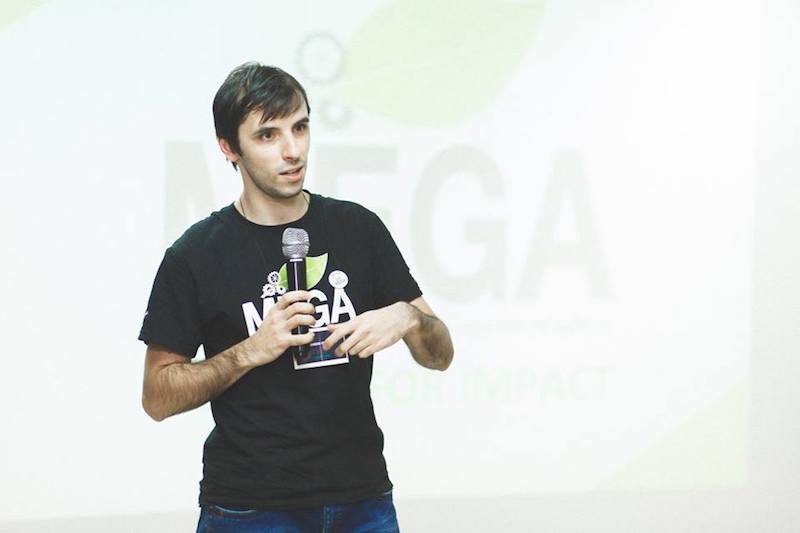
Sounds very busy indeed. What are your plans right now?
The plan for this year is to finalise the development of the MEGA Game web platform by adding the new features such as quests, courses and in-game social networking among players. Then, we will shift focus onto finalising the development of the smartphone application version of MEGA Game and on connecting the app with the platform for continuous play on different devices.
What about your organisation?
We aim to scale up to the international market by establishing a corporate branch in Europe and moving our headquarters there. While the existing organisation in Moldova will proceed with gamification-based projects and educational initiatives, the new headquarters will take over the development and management of MEGA Game as well as the delivery of the gamification and game development services, to our customers and partners.
While we are doing this, we will certainly continue providing our services to our existing and potential partners. We now have a waste prevention and recycling campaign to gamify; a game for bat conservation to release; a gamification platform, for learning programming language to develop and a new edition of a gamified course on social robotics and eco-innovation to deliver. All in all, there are MEGA busy and exciting times coming for us, this year.
Which markets would you like to expand into?
For this and next year, we will mostly focus on the European market, as it is quite rich with environment and sustainability oriented initiatives, organisations, and businesses. Europe is growing quite fast in terms of sustainable development, including renewable energy, natural resource efficiency and climate change mitigation etc. In order to do this, it needs a lot of specialists with interests in environment protection and management, as well as practical experience in this domain.
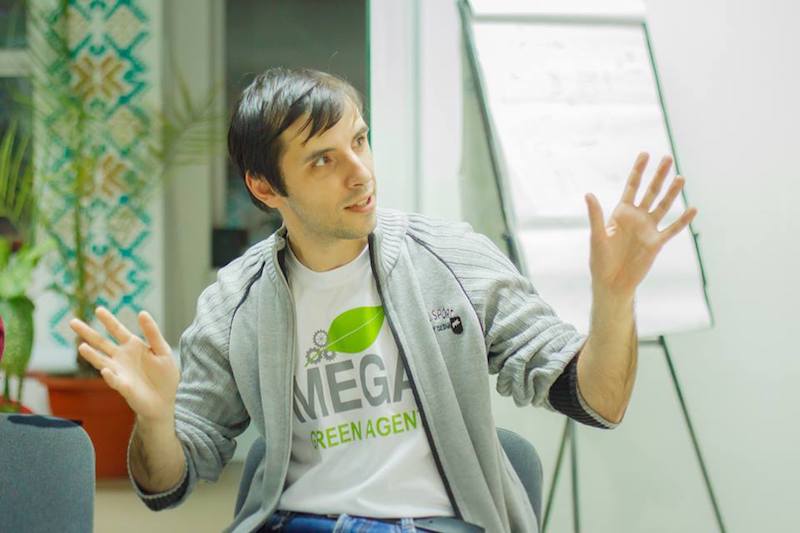
Moreover, nowadays its member countries are experiencing growth in social issues and they need talented people who have the skills to deal with those issues in a socially caring and collaborative way. This is exactly what MEGA Game and our gamification services are geared towards: developing young specialists in the above-mentioned areas and connecting them with organisations and companies to collaboratively produce real-world value and positive social / environmental impact.
After establishing ourselves firmly in Europe, we plan to expand to North America and Central Asia, where we already have a network of possible partners and potential beneficiaries. Ultimately we see ourselves, and our MEGA Game, as people and organisations’ first choice when it comes to an immersive game-like platform for environmental e-learning and for the collaborative development of open-source eco-innovations and sustainable solutions worldwide.
Did you also invest your own funds?
Certainly; during the first year of developing our idea, almost no one believed what we were planning to develop and offer was feasible. Therefore we invested our own financial resources, time, efforts, etc. to build a minimum viable product (MVP) and then showed how it works and creates value in society and environment. After that we, slowly but steadily started attracting interest which brought valuable contacts and/or financial support, in more and more cases.
Nowadays we still invest certain portions of our own funds into MEGA Game development and scaling up our services. But overall the budget for MEGA is covered, and we are generating revenue that we can invest back into our further growth.
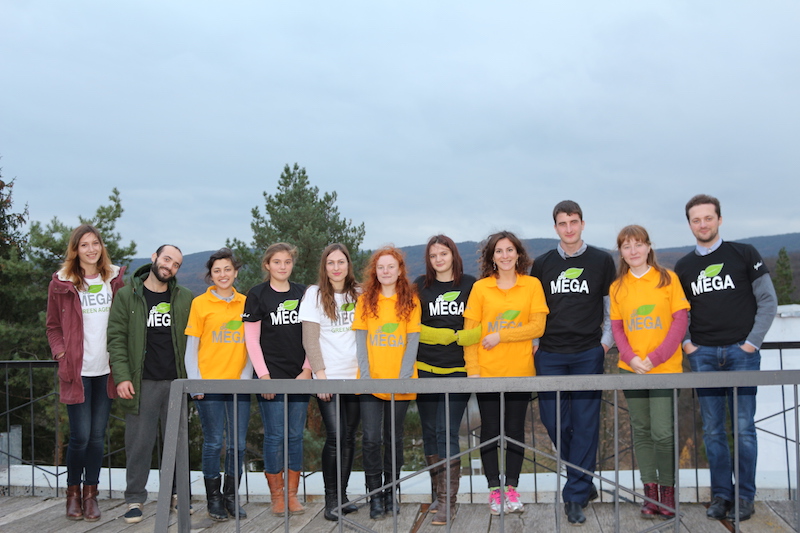
How does MEGA Game work?
MEGA Game connects individuals, called green agents, as well as companies and organisations, called mission providers, in engaging quests to learn about the environment and sustainable development and at the same time get involved in collaborative action for creating real-world positive changes in society and the environment in different locations.
The activity in MEGA Game starts when a mission provider, a non-governmental organisation or a company with corporate social responsibility (CSR), has a social / environmental project that it wants to turn into an engaging and rewarding game, with practical learning and concrete outcomes. Either a contact person from the company or organisation or we, as part of our gamification service, transform the activities of the project into missions, and then connect them with video training and link them together into a logical quest, which we then upload to MEGA Game. The mission provider can also request a complete customisation of the entire game design, framework and elements, etc. by using the administration feature through our Premium Access service.
When the entire quest with is ready its missions and video training, the players are invited into MEGA Game. They register as green agents and then start their journey as top secret agents, who are committed to making the world a better place for society and the environment. Each green agent looks at the available missions in their location, and plans a strategy for undertaking them, one by one, before accomplishing them in the real world. A mission is considered to be completed, when the mission provider receives a short report in the form of a text, photo, or link to video that contains clear evidence of the results and impact that was achieved,.
A green agent progresses through the levels and challenges of the quest by completing missions and earning rewards until their final challenge and they gain the status of change agent. At that time the player has significant practical knowledge on the topic of the quest, has developed personal skills, has created a record of real-world positive impact and has testimonials from the mission providers. All this is documented and clearly visible on his/her public profile.
On the other side, the mission provider achieves their objectives and expected results in a cost efficient way, with detailed documentation, about the positive value that has been created, via mission reports. Furthermore, mission providers also receive rewards and progress through MEGA Game. In the end the most active ones are displayed at the top of the leader board and are showcased as green and responsible change agents.
Who is your basic audience; who are the most frequent users of MEGA Game?
Among the mission providers that we have at the moment are mostly international organisations that are focused on education for peace and sustainable development as well as private companies with CSR policies that are willing to support environmental initiatives. Some of them use the “official” MEGA Game, while others request that a customised copy of the gamification platform be made available on their own server and integrated into their on-line communication and community engagement tools.
Among the green agents, the majority of players are young people (high school and university students) in Moldova, who are interested in participating in game-like social / environmental projects, in learning from them, and then producing positive changes in society and the environment that they can then be proud about and show to their peers.
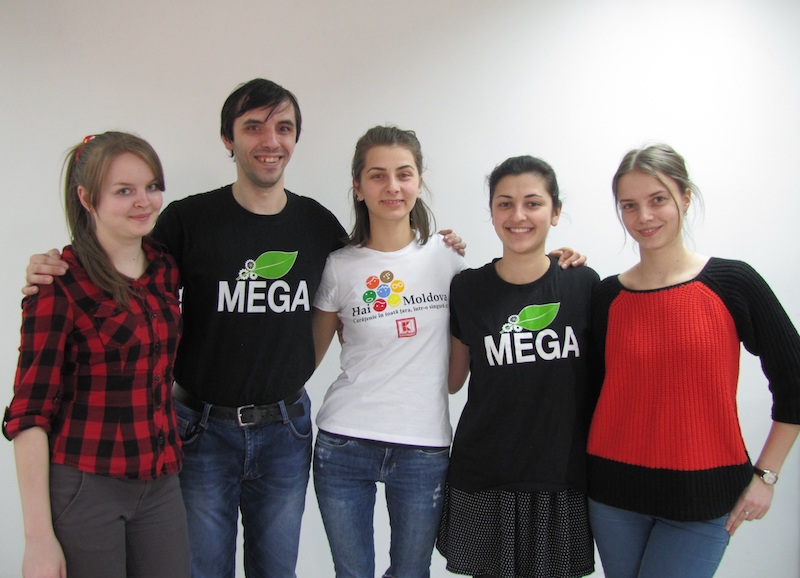
When did you come up with the idea of the MEGA Game?
The idea of MEGA and MEGA Game came to me back in summer of 2013. It came out of the MEGA co-founders’ personal “pain” of not having the means to connect with like-minded environmentally-concerned individuals and organisations. It also came from the fact that much of today’s environmental education and action is focused on negative emotions such as the fear of a possible environmental apocalypse and the guilt that we, mankind, are the reason behind it. As a “gain” and a solution to such problems, we proposed a collaborative platform, where engagement, learning and action are driven by positive emotions: fun, entertainment and optimism for a bright vision of a sustainable world.
Many start-ups are established to solve the founder’s problem.
Yes, back in 2013, when I worked in a previous start up called Dreamups that my friends and I co-founded, we organised the Dreamups Sustainability Lab in Moldova. It was an event for co-creating open-source eco-innovations and sustainable solutions. It was there that I realised that much of the motivation to create these solutions and to improve the state of the world was based on the emotions of fear of an environmental apocalypse (“if we do not do it, then the nature will be destroyed and we will etc.”) and guilt that we, humans, contribute to its advent through our daily activities and lifestyle choices.
This can be seen in many events, educational activities, and campaigns to raise awareness concerning the environment and sustainable development. However, these emotions are not sufficiently constructive, as they motivate people to do only the minimum that is necessary to prevent or postpone negative effects. In order to create a sustainable and prosperous world one needs to do much more than that. This can be achieved only with positive emotions, encouragement, fun, and focus on the positive vision of the future – the things that are essential parts of games and gaming initiatives. As a gamer, I know this and I would like to see these elements in the domain that I am very passionate about: the environment, biodiversity and sustainable development.
Besides that, I remembered how education, especially the environmental education, is carried out in Moldovan schools. It is almost entirely lecture-based, hierarchical, with a unidirectional delivery of theoretic education. It has almost no space for creativity, innovation, practical experiments or a feeling that you are doing something meaningful for this world. In addition, education on sustainable development is non-existent in general, at least in our country. So, there is a lack of specialists and experienced practitioners who could improve the state of environment and social well-being in Moldova, both of which degrade very quickly here. I would have loved to have connected and worked with such people, but it was extremely difficult to find them.
Once you had set up the company, how long did it take you to realise that you were going in the right direction?
Since the very beginning of our activities, as a fully registered social venture, we have stayed committed to our vision, mission, goals and ways of achieving them. On this “journey” we have received much encouragement and positive feedback, indicating that we are on the right track. The world, society and the environment need what we offer.
We have certainly altered certain aspects, and changed a number of features, of our MEGA Game and services along the way. These alterations were driven largely by the feedback and suggestions of our friends, partners, customers and beneficiaries, thus making the entire process of MEGA development and growth a truly collaborative one. We continue to rely on the wishes and ideas of our MEGA Generation community of supporters and stakeholders, who help us move in the right direction. As we say in our team, “We make it MEGA TOGETHER!”
You don’t seem to have any direct competition. Are there similar apps in other countries?
Indeed, it seems that there is no similar gamification platform for practical environmental / social education or connection between youth and organisations / companies that is based on the merging of on-line gameplay and off-line real-world collaborative action. However, there are games, platforms and apps that have some of features similar to those in MEGA Game.
For example the World Rescue game which was launched at the UNESCO Week for Peace and Sustainable Development offers users a fun and challenging journey to contribute to resolving a number of social / environmental issues and in this way to learn about Sustainable Development Goals (SDGs). However, all the action happens in a virtual world.
Another example of a gamified learning platform is Khan Academy, where users can earn points and special badges for watching video training, for progressing through courses and for doing exercises. Still, once again it is entirely on-line and is not connected to specific locations in the real world. It also offers only a limited connection to the providers of learning content and exercises.
How many people were there in the company when you started out?
There are four co-founders of MEGA: Natalia Ursu, Maria Movila, Elena Scutaru and myself, Alexandr Iscenco. All of us come from Moldova. As times passed, our MEGA Team experienced a number of modifications: some people stayed, some new people came on board, while others focused on other start-ups, jobs or family matters. Among the new members in the MEGA Team, who have contributed significantly to the development of our social venture and MEGA Game are Ruxanda Vihrest from Moldova, Johnathan Li from Canada, and Benedikt Marschuetz from Austria.
How big is the team now? Where is the biggest chunk of your team based?
These days the MEGA Team consists of the following seven “Agents”: Taisia Camenscic, Victoria Ursachi, Valeriu Istrati, Elena Ungureanu, Veronica Cazacov, Pavel Popovciuc and myself. The majority of us are based in Chisinau, Moldova, where we work in an office and a co-working space. However, some of us travel frequently to other countries in order to collaborate with our partners and deliver our services.
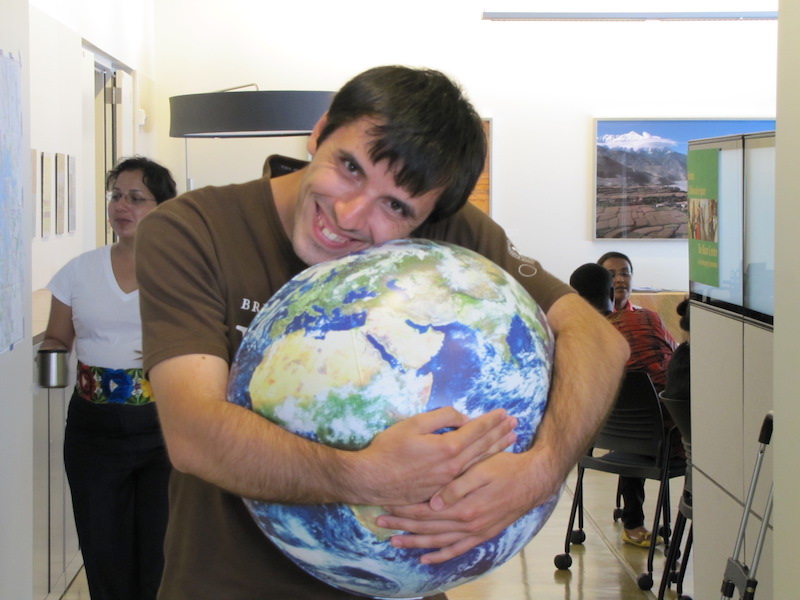
What advice would you give to companies from the region who would like to expand to other markets?
It is relevant that we are planning to expand to the European market and so it is we, who would like to receive some advice. Still, from our experience of working with foreign partners and customers we can say that one should start to enter new markets after the company has at least one partner / customer there. This early adopter can help to give you valuable information about the preferences of that new market, as well as to spread the word about the company’s product / service.
It is a strategy of its own, getting that early adopter. You can be referred to them by an existing partner in the local market, you can meet them at an event where you present your product / service or they can find you, via an article in mass media, etc. For us it was all these ways that led to our getting various early adopters from the European and Asian markets, who wanted to use our MEGA Game and additional gamification services. So, it is worth trying a combination of several approaches to get that first contact in a new market and then with their help you can obtain more and more partners and customers there.
How do you see the company developing over the next few years and where will the company be in ten years?
What comes next is the finalisation of the development of the MEGA Game web platform, the development and release of the MEGA Game app and the expansion to the European market. For all this to happen we will need to expand the functions in our organisational structure and to attract more talents to take them on and to contribute to the MEGA growth. There will also be the establishment of our branch in one of the EU countries and most likely we will move the MEGA headquarters there. At the same time we will continue delivering and improving our gamification and game development services, delivering our gamified training and organising our strategic projects on the basis of MEGA Game, such as the MEGA Impact Championship, Operation P.E.A.C.E., Hai Moldova and the Eco-hackathon.
In ten years MEGA will be the leading developer of “serious games” about practical learning and action in environmental management and sustainable development on the markets of Europe, Central Asia, and North America.
Our MEGA Game represents the peoples and organisations’ first choice when it comes to an immersive game-like platform for environmental e-learning and collaborative development of open-source eco-innovations and sustainable solutions worldwide. It has 350,000 registered Green Agents creating 30,000 types of sustainable solutions and eco-innovations that 70,000 Mission Providers are using to improve the state of natural environment and social well-being in a fun, collaborative, and cost-efficient way. Though them, and MEGA Game in general, we are contributing to the rapid transnational exchange of knowledge, talents, efforts, technologies, and positive emotions. Together these help the world achieve sustainable development goals and we move closer to our vision of a sustainable world.


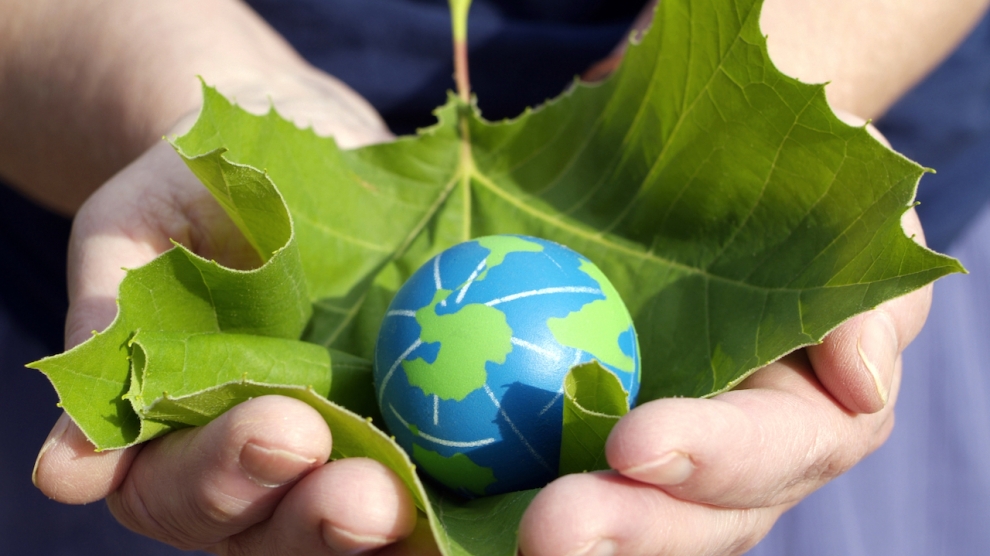
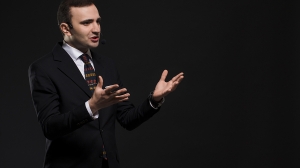
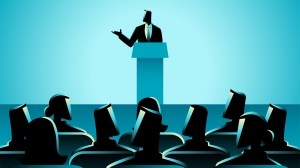

Add Comment